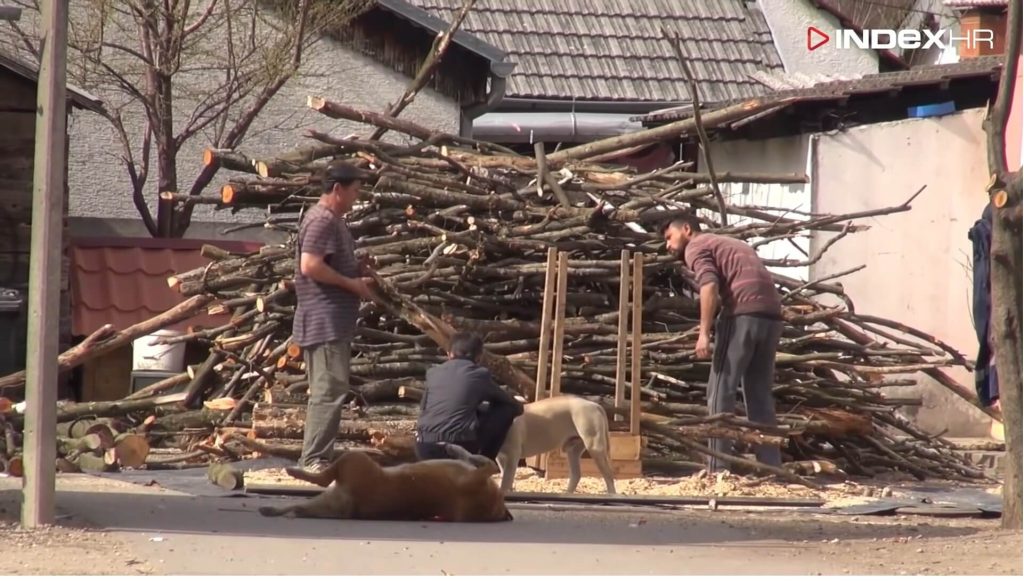Despite coronavirus infections being low at the moment, the situation is tense. On July 5, as TCN reported, only 35% of the Croatian population was vaccinated as the Delta strain spreads globally and in the country.
“Unfortunately, we aren’t satisfied with the percentage of vaccinated people we hoped to have. We all wanted to vaccinate more than 50 percent of the total Croatian population during June, but sadly our numbers in that regard are much lower. Only about 35 percent of the total Croatian population has been vaccinated, which isn’t enough for them to be calm and to be able to live according to the old normal,” said epidemiologist Dijana Mayer back then. This was punished with the Croatian coast no longer being in the green, and without bigger vaccination interest, things can turn red. As TCN wrote, there are 5-6 Positive Cases at Split Airport every day, and new measures are introduced to British tourists as the Delta strain is booming there (but in a less fatal manner because of vaccines). Stricter measures, in general, can be excepted by the end of the month in Croatia too.
Fortunately, things got better in July. As reported on Wednesday, „Croatia administered nearly three million vaccine doses. Thus, 1.6 million people have received at least one dose of vaccines against COVID-19, and 1,388,674 have fully been vaccinated (1,349,652 have been double-jabbed plus 39,022 who have received a single-dose Jannsen vaccine), and this makes up 41.24% of the adult population“.
But, disinformation about COVID-19 vaccines is vividly spread (just as disinformation about COVID-19), leaving Croatian fact-checking site Faktograf knee-deep in debunking work. Many Croatians sadly believe the fake news of the anti-vaxxers, and the situation culminated to the point where the Croatian officials (as officials in many other EU countries that also struggle with anti-vax propaganda) seriously discuss obligatory vaccination. Will it happen? Some politicians are up for it, others no, but overall, the situation is uncertain as the fourth infection wave approaches, and the season could potentially be in jeopardy in mid-August, as 24 Sata writes.

COVID-19 vaccine © Pixabay
In summary, there are currently more vaccines in Croatia than there are people interested in. It’s hard to believe how things progressed from the start of the year when we witnessed a delay in vaccine shipments, outrage by the public when people such as Zagreb University Rector Damir Boras received the vaccine ahead of time and schedule. From the malfunctioning Cijepi se (Vaccinate yourself) website where you had to register for an appointment (which took forever to get) to a family doctor being able to sign you up, all the way to be able to take a shot without an appointment today, vaccines truly became accessible for everyone. There were even buses bringing vaccines and performing vaccinations in remote villages. So vaccines are for everyone to take, but is it really so?
Nothing in the world is perfect, and neither is Croatia. From time to time, we can see that some groups in Croatian society do get discriminated against or suffer negative stereotypes. For example, with significant progress in accepting the LGBTQ community, sadly homophobic attacks still happen. The tensions with the Serbian minority vary from the day-to-day political agenda, but it is safe to say no one has it worse than the Roma people in Croatia.
As TCN previously wrote, following the 2020 report by Human Rights House in Zagreb, Roma people in Croatia are still facing many obstacles in achieving their rights, which include employment, access to services, and adequate living standards, and there is still segregation in the education system too. Either perceived as thieves, criminals, beggars or completely ignored in Croatia, the question of how many Roma people in Croatia received the vaccine and how many Roma people want the vaccine in the first place, can’t be left aside, as it shows how much the vaccine rollout truly is fair for every citizen in the country.
Disinformation crippled 80% of those willing to get the vaccine
Veljko Kajtazi, a member of the Croatian parliament, elected as a representative of the Roma community, says that official research of percentage of vaccinated Roma people hasn’t been conducted, but he frequently goes „to the field“, and sees that the situation isn’t good.
„If 45% of the Croatian population is vaccinated, I can say that Roma people are a very small percentage of that number“, commented Kajtazi, then on a relevant number of vaccinated people.
He supports the talk of obligatory vaccines and finds disinformation and fake news regarding vaccines to be the cause of low interest.
 Veljko Kajtazi, screenshot / Hrvatska radiotelevizija
Veljko Kajtazi, screenshot / Hrvatska radiotelevizija
„Roma people have a very social culture, love gatherings, and live in big families. When the pandemic started, I cooperated with authorities in ensuring that social distancing measures are respected in Roma settlements and that we educate people on the dangers of coronavirus“, recalled Kajtazi.
While Roma people can be found living anywhere, the majority is often ghettoized. An example is in Zagreb, where the Kozari Bok neighborhood on the east side of the city is famous for its big Roma population. When looking outside of the capital city, there are many Roma villages and settlements which count more people than other Croatian villages.
One such place is Piškorovec in Međimurje, which the Lupiga news site referred to as „the biggest Croatian ghetto“. Their article detailed both living in Piškorovec and tensions with the nearby town of Čakovec underlining incidents and division between Roma and Croatians (as Roma People are often perceived as thieves or beggars).
„Last year 80% of Roma people wanted to take the vaccine, but today, they are scared and believe various conspiracy theories. People are not informed, and social networks spread so much disinformation“, Kajtazi pictured how wishing for a vaccine turned sideways.
In the end, he added that he is regularly in contact with the government and institutions to provide information on vaccines to the community. Katja also hopes the vaccine buses will come to Roma villages too.
Questions for HZJZ
The lack of information, geographical isolation, and the overall achievement of social rights (such as health insurance) like other Croatian citizens that the Human Rights House in Zagreb expressed in their report left a lot of open questions regarding Roma people vaccination. Particularly, are there any statistics on how many people vaccinated that the health officials might have, what is the mood towards vaccines in Roma communities in their view, and can buses come to isolated areas to vaccinate Roma people? The inquiry was sent to the Health Ministry and to the Croatian Public Health Institute (HZJZ). Health Ministry very quickly forwarded the inquiry to the Croatian Public Health Institute (HZJZ) as these questions are part of their domain. The health ministry even forwarded the questions directly to the HZJZ headmaster Krunoslav Capak himself and other close associates on e-mail addresses not visible on the HZJZ website. But, HZJZ hasn’t responded yet. Whether I tried to remind them and ask when can they answer via e-mail or phone calls, none left a response (although a phone call with HZJZ PR service confirmed there are experts in HZJZ that deal with the health of vulnerable social groups, which includes Roma People).
When the answer that can be expected for the moment remains unknown, but TCN will publish HZJZ’s response when we receive it.
In the meantime, as we can see, despite vaccine skepticism being strong, there is nevertheless a slow but steady daily rise of vaccinated people in Croatia.
Let’s hope for the sake of public health that disinformation and fake news that turn people away from the vaccines will lower its influence on all the cultural groups and identities you can find in Croatia.
Editor’s note: HZJZ response
Learn more about travelling to Croatia during the COVID-19 pandemic on our TC page.
For more about COVID-19 in Croatia, follow TCN’s dedicated page.











